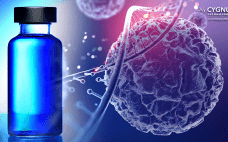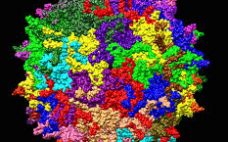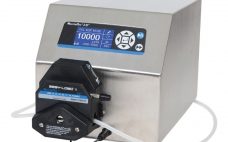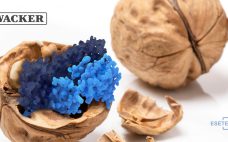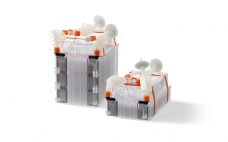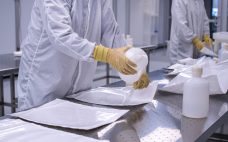This webcast features: Jared Isaac, PhD, Sr. Scientist, Chromatography and Mass Spectrometry, Cygnus Technologies Next-generation recombinant vaccines and gene therapy products require clinical and commercial manufacturing of protein antigens or viral vectors produced using cell culture technologies. Regulatory guidelines require testing for cell substrate related impurities, media and purification additives, as well as adventitious agents throughout vaccine and gene therapy development to study the candidate’s purity, safety, and efficacy. While low levels of most impurities can be inconsequential, patient safety…
Ask the Experts
Simplifying AAV Downstream Process and Product Characterization: A Look at Purification and Analytical Tools
This webcast features: Dr. Julia Baek, PhD, Staff Specialist, Ilaria Scarfone, PhD, MBA, Field Applications Specialist, and Chantelle Gaskin, Field Applications Specialist, Thermo Fisher The optimization of the downstream process for adeno-associated virus (AAV) production with consistent quality depends on the ability to characterize critical quality attributes affecting potency, purity, and safety of the final product. As the gene therapy field continues to push products through the clinical pipeline, an increasing need for efficient analytical tools has become evident. In…
How to Optimize Final Filling in Bioprocessing
This webcast features: Andeka Ocio Velasco, Manufacturing & Process Validation Technician, Progenika Biopharma, a Grifols company; and Robert Martindale, Product Sales Manager, Masterflex EMEA, Antylia Scientific The final filling mistakes within bioprocessing are far too expensive to be allowed or tolerated. Continuous optimization is a commitment that all companies need to embrace to increase business profitability potential. Evaluating and utilizing new technologies will enable a faster methodology of process, increase the scaling up of bioprocesses, and increase the accuracy of…
Ask the Expert: Selecting the Right Buffer Management Strategy
Although buffers are among the simplest materials used in bioprocessing, they are critical to biopharmaceutical manufacturing success. Buffer preparation, storage, and handling can require significant investments in time, labor, equipment, and facility space. Jenny Dunker, MSc, and Alexander Troken, PhD (global product managers for customized bioprocess solutions and for process liquids and buffers, respectively, at Cytiva), delivered an “Ask the Expert” presentation on 30 March 2021 to explore strategies for intensifying buffer management. Available Options Biopharmaceutical manufacturers often prepare buffers…
Ask the Expert: Considerations for Mass Spectrometric HCP Analysis During Process Development
Host-cell proteins (HCPs) must be assessed early in biopharmaceutical product development to establish the efficiency of a purification process. Liquid chromatography coupled with mass spectrometry (LC-MS) is a strong orthogonal method for HCP identification and quantitation. During an 18 March 2021 “Ask the Expert” presentation, Christina Morris (senior scientist at BioPharmaSpec) explained how MS analyses can enhance process development (PD), then presented considerations for generating spectral libraries, selecting samples for quantitation, and reviewing data. Morris’s Presentation Spectral Libraries: A typical…
Mixed-Mode Chromatography: Optimizing Target Purity and Recovery with Buffer Additives
This webcast features: Xuemei He, PhD, R&D Manager of Chromatography Media Chemistry, Bio-Rad Laboratories New biotherapeutic constructs continue to increase in biopharmaceutical development, extending treatment options to a broad range of diseases we face today. These biopharmaceuticals include recombinant proteins, monoclonal antibodies, antibody drug conjugates, bispecifics, viruses, and virus-like particles to mention a few. A simple, straightforward approach to the production of these biomolecules is required to meet the current demand for process efficiency and economics. Innovative chromatographic methods facilitate…
Inducible Secretion with ESETEC: The Solution for Difficult-to-Produce Proteins
This webcast features: Dr. Marcel Thoen, Head of Global Competence Center for Cell Line Development, Wacker Biotech Escherichia coli is the most popular expression system for all nonglycosylated biopharmaceuticals. However, common challenges include purification of expressed proteins recovered from the periplasm or those needing refolding from inclusion bodies. These constraints have been addressed by the unique secretion E. coli expression system ESETEC (E. coli secretion technology) developed by Wacker Biotech. Through years of experience, Wacker Biotech has observed that secretion…
Tools for Simplifying MSC Expansion, Cryopreservation, and DMSO Removal
This webcast features: Hilary Sherman, Senior Scientist, Corning Life Sciences Mesenchymal stem cells (MSCs) are one of the most frequently utilized cell types for cell therapy applications due to their ability to be isolated from several sources and easy adaptability to culture conditions. Bone marrow derived MSCs in particular are commonly studied due to their ease of access and achievable therapeutic dosage. While expanding MSCs to achieve these quantities, there is a risk for heterogeneity-induced quality failures during the manufacturing…
The Unique Benefits of Presterilized Fluoropolymer Bottles: Case Studies in Vaccine Delivery Applications
This webcast features: Eric Isberg, Vice President, Life Sciences, Savillex Fluoropolymers are the ultimate materials for use in bioprocess applications, providing increased purity, compatibility, inertness, and security for process fluids and bulk product. Bottles and vials manufactured from fluoropolymers have the added benefits of having virtually no leachables and extractables, a very wide service temperature range including performance down to liquid nitrogen temperatures, and unmatched durability, including being essentially unbreakable during use. This presentation will highlight the benefits of presterilized…
Ask the Expert: Formulation Strategies for AAV-Based Gene Therapies
Although formulation and drug-product activities are critical to developing gene therapies, much remains to be learned about their degradation mechanisms, and firm criteria still need to be established for buffer and excipient selection. Sarathi Vijay Boddapati (associate director of formulation and drug development at Catalent Cell and Gene Therapy) joined BPI on 25 March 2021 to present what his company continues to learn about formulating gene therapies by adapting methods used for other biologics. Boddapati’s Presentation Adenoassociated virus (AAV) remains…

